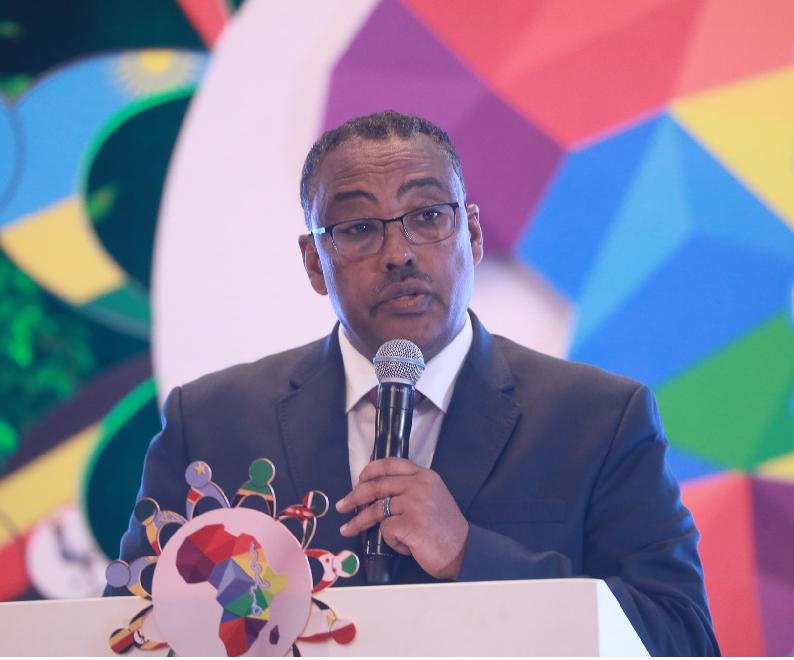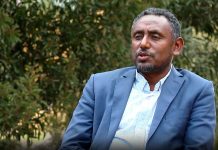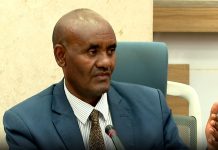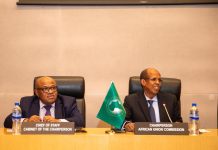Africa-Press – Ethiopia. Institutionalized cooperation is crucial for equitable and reasonable utilization of the Nile River, Deputy Prime Minister and Foreign Affairs Minister Demeke Mekonen said.
A three-day first High-level Conference on Equitable and Reasonable Utilization of the Nile River Water Resources that attracted over 150 different stakeholders from the Nile basin and experts in the region kicked off in Addis Ababa today.
The aim of the conference is to exchange views on different facets of the principles of equitable and reasonable utilization as well as to enhance mutual understanding and take policy input.
Deputy Prime Minister and Foreign Affairs Minister Demeke Mekonen said the conference is important platform to enhance mutual understanding on Nile River issues.
“This is a step towards ensuring a more inclusive understanding of the principle to arrive at win-win solutions. This platform will be a deliberative forum providing an opportunity to discuss recent developments on the Nile River. The result of the celebrations, suggestions and recommendations could be captured for input in policy making in all our countries and the Nile Basin Initiative.”
The river that supplies livelihood to over 500 million people who live along its banks and which also accounts for two-thirds of the surface water in Ethiopia is in grave danger due to man-made and natural pressures compounded by lack of institutionalized cooperation.
“This river of such high importance for sustaining life and for development is in grave danger due to unsustainable human use, environmental degradation, high population growth and other pressures. These pressures on the river are compounded by lack of institutionalized cooperation based on equitable and reasonable utilization of the Nile River” Demeke noted.
He also pointed out that “the Nile Basin Initiative provided the forum for undertaking joint confidence building projects, including the protection of the river and the development of the Cooperative Framework Agreement (CFA).”
CFA has provisions that ensure the principles of equitable and reasonable utilization of the Nile water resources and it is a balanced document that deserves support.
Demeke explained the issues preventing the sustainable use of the Nile river, saying that it is “on the one hand, threatened by the ever-increasing water demand due to population growth, environmental degradation, and climate change, among other things.”
The tendency to assert hegemony over the shared water resource, on the other hand, continues to be a barrier to the equitable and sensible utilization of the Nile waters, he emphasized.
“The upstream and downstream countries used the negotiation process and the final to reflect their interests. The principles of equitable and reasonable utilization reject any monopolist claims over the Nile River. It is a balanced document deserving all our support. With this, I encourage riparian countries that have not done so to consider ratifying CFA.”
He further called on riparian states to expedite the coming into force of the CFA, which would address problems in a lasting manner.
Demeke recalled the actions taken by the riparian nations on the Nile in the past years, saying that riparian states have sought to address these challenges and have made modest strides to conserve the shared resource while trying to ensure fairness in its utilization.
“Over the past decades, riparian countries have sought to address these challenges. We have a mixed record of progress in institutionalizing the principle of equitable and reasonable utilization and in conserving the river.”
In addition to this collective effort that we are making to ensure fair and equitable use of our shared resource, the government of Ethiopia has, in the framework of the CFA, supported basin wide development and restoration.
He further pointed out that the Grand Renaissance Dam (GERD), which partly started generating hydroelectric power is important for the development of Ethiopia and will also benefit the lower riparian countries and neighboring countries.
Minister of Water and Energy Eng. Habtamu Itefa, State Ministers of Foreign Affairs, Ambassador Tesfaye and Ambassador Birtukan Ayano, Deputy Mayor of Addis Ababa City, Zantirar Abay, delegates from Tanzania, Uganda, Kenya, and South Sudan; representatives from various water institutes; and high-level guests were in attendance.
For More News And Analysis About Ethiopia Follow Africa-Press






